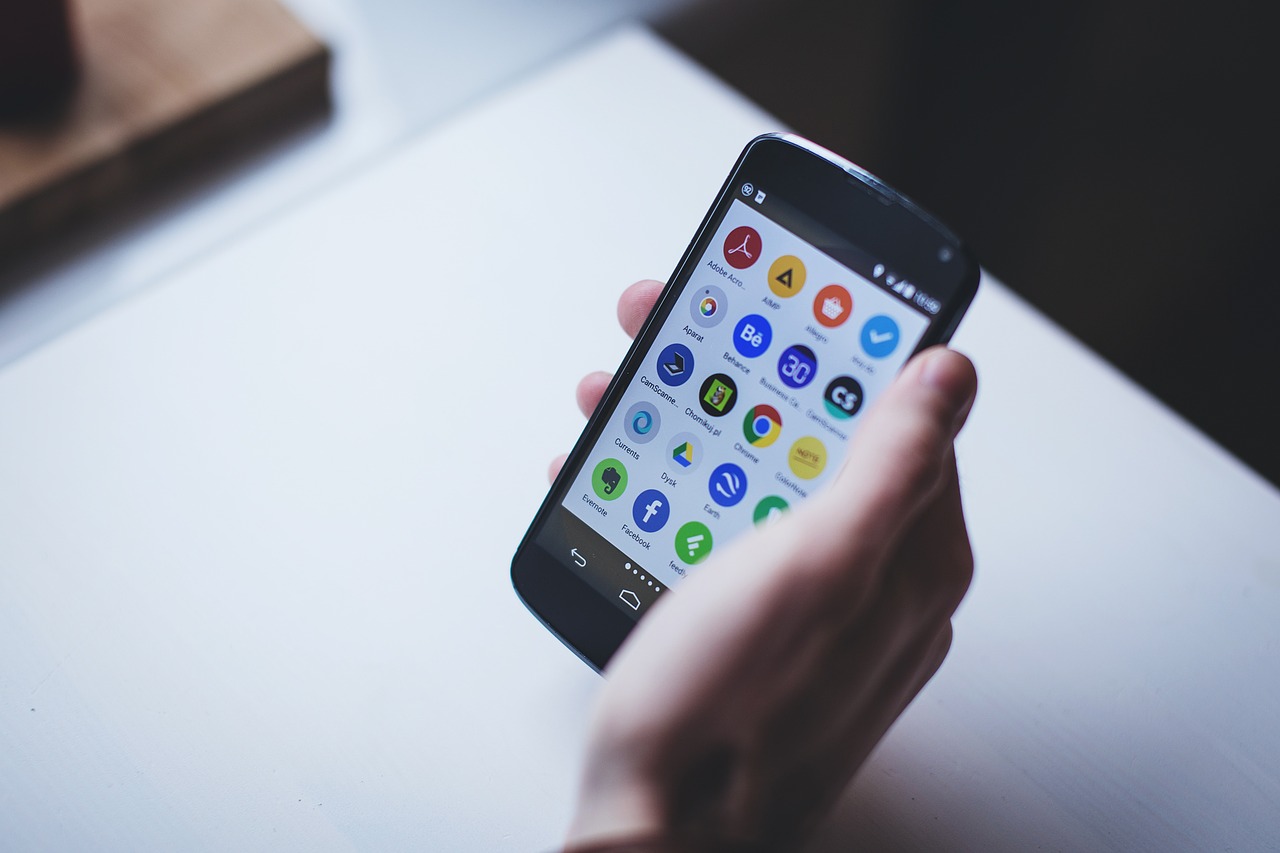Personal finance is a source of stress for virtually every person. From creating a budget to saving money for a rainy day, financial management involves a great deal of planning and knowledge. Luckily, the digital age has helped to make many of these processes easier and has taken the guesswork out of some of the most stressful ones. Today, people have access to a number of smartphone apps that are free and cheap, and which can make saving, investing, and budgeting much more manageable. Here is a look at some of the best apps out there now for personal financial management:
1. Acorn:
 Through Acorn, people can link their debit or credit cards to an investment account. Every purchase made on your card is rounded up to the nearest dollar with the change going toward your investment account. You can also choose to transfer larger amounts to an account at any point, or you can set up a designated monthly amount to invest, however large or small. Users can choose the portfolio that they wish to invest in, which will largely depend on their comfort level with risk. Since the app literally uses pocket change, individuals may want to take an aggressive approach to investing as a means of learning more about the larger investment world. However, a lot of people choose low-risk accounts and view the app more as a way to save money.
Through Acorn, people can link their debit or credit cards to an investment account. Every purchase made on your card is rounded up to the nearest dollar with the change going toward your investment account. You can also choose to transfer larger amounts to an account at any point, or you can set up a designated monthly amount to invest, however large or small. Users can choose the portfolio that they wish to invest in, which will largely depend on their comfort level with risk. Since the app literally uses pocket change, individuals may want to take an aggressive approach to investing as a means of learning more about the larger investment world. However, a lot of people choose low-risk accounts and view the app more as a way to save money.
2. Mint:
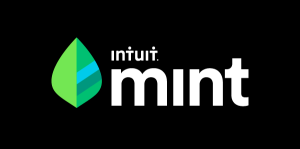 One of the most popular personal finance apps, Mint provides a real-time glimpse into people’s finances. Mint will link to bank accounts, credit cards, student loans, and even 401ks. Through these links, the app tracks all spending so that people can see where they spent the most money and create a plan for reducing their expenses. The app also allows users to set budget limits for themselves. Then, as they grow closer to their limit, the app creates an alert. The app even offers personalized savings tips based on recognized patterns. The interface is incredibly simple and intuitive, which makes it a great place for people to begin taking control of their spending.
One of the most popular personal finance apps, Mint provides a real-time glimpse into people’s finances. Mint will link to bank accounts, credit cards, student loans, and even 401ks. Through these links, the app tracks all spending so that people can see where they spent the most money and create a plan for reducing their expenses. The app also allows users to set budget limits for themselves. Then, as they grow closer to their limit, the app creates an alert. The app even offers personalized savings tips based on recognized patterns. The interface is incredibly simple and intuitive, which makes it a great place for people to begin taking control of their spending.
3. Digit:
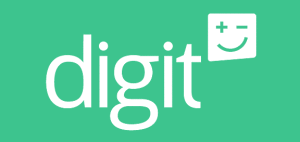 A relatively new app, Digit has received support from Google. The idea behind Digit is that people will spend money if they have it. The app scans your spending history and predicts how much money you will need to meet your weekly needs. Then, when it senses that there is extra money in your bank account, it transfers those funds to a separate savings account. Ideally, individuals will not even realize that these microtransactions are taking place until they check their savings accounts and see how much they have saved through the app. People can then make withdrawals from this special savings account whenever they want or need to do so. The free app is funded by the interest earned off savings accounts. Thus, users will not earn interest on the money saved.
A relatively new app, Digit has received support from Google. The idea behind Digit is that people will spend money if they have it. The app scans your spending history and predicts how much money you will need to meet your weekly needs. Then, when it senses that there is extra money in your bank account, it transfers those funds to a separate savings account. Ideally, individuals will not even realize that these microtransactions are taking place until they check their savings accounts and see how much they have saved through the app. People can then make withdrawals from this special savings account whenever they want or need to do so. The free app is funded by the interest earned off savings accounts. Thus, users will not earn interest on the money saved.
4. Level Money:
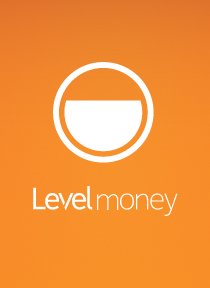 The ideal app for people who have difficulty creating a sustainable budget, Level Money connects to a user’s bank account to calculate the amount of money needed for recurring bills and monthly income. Then, the app provides suggested spending amounts for each day, week, and month. The app also automatically calculates how much money people should save each month and allows users to set up an auto-save function. In addition, any money left unspent in one’s weekly budget is rolled over to a savings account. Level Money also tracks spending in real time so that people can see exactly where they are spending their money and how much of their income goes toward food, entertainment, etc.
The ideal app for people who have difficulty creating a sustainable budget, Level Money connects to a user’s bank account to calculate the amount of money needed for recurring bills and monthly income. Then, the app provides suggested spending amounts for each day, week, and month. The app also automatically calculates how much money people should save each month and allows users to set up an auto-save function. In addition, any money left unspent in one’s weekly budget is rolled over to a savings account. Level Money also tracks spending in real time so that people can see exactly where they are spending their money and how much of their income goes toward food, entertainment, etc.
5. Credit Karma:
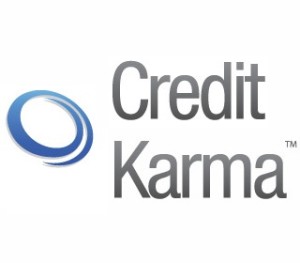 Many people know Credit Karma as a source of free credit scores and reports. While this service can help individuals to keep better track of their financial health, the company’s app is much more robust. The app connects to credit cards and bank accounts in order to monitor spending. Based on this information, which individuals can track through the app, the company makes suggestions about credit cards and loans that can help individuals improve their financial situation. Recently, the app has also begun making suggestions about auto insurance and mortgages. The app has more than 32 million users worldwide.
Many people know Credit Karma as a source of free credit scores and reports. While this service can help individuals to keep better track of their financial health, the company’s app is much more robust. The app connects to credit cards and bank accounts in order to monitor spending. Based on this information, which individuals can track through the app, the company makes suggestions about credit cards and loans that can help individuals improve their financial situation. Recently, the app has also begun making suggestions about auto insurance and mortgages. The app has more than 32 million users worldwide.
6. Wally:
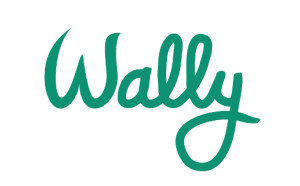 An expense-tracking app, Wally makes the process as easy as possible by incorporating the camera function so that you can simply scan in your receipts rather than typing in transactions made with cash. The photo is automatically translated into spending data. The app then saves copies of these receipts. Users can categorize their spending based on a variety of categories, including personal, social, or even work-related expenses, which can help when preparing your taxes. When tracking spending data, users can view expenditures on a daily, weekly, or monthly basis.
An expense-tracking app, Wally makes the process as easy as possible by incorporating the camera function so that you can simply scan in your receipts rather than typing in transactions made with cash. The photo is automatically translated into spending data. The app then saves copies of these receipts. Users can categorize their spending based on a variety of categories, including personal, social, or even work-related expenses, which can help when preparing your taxes. When tracking spending data, users can view expenditures on a daily, weekly, or monthly basis.
7. Check:
A free app, Check helps to ensure that people never miss a due date. The app provides a simple, centralized location for tracking bills and monitors both bank accounts and credit cards. The app provides due dates and other account details with reminders for paying certain accounts and alerts people when they have low funds in their bank accounts or are nearing their credit limits. Individuals can also use the app to schedule bill payments.

